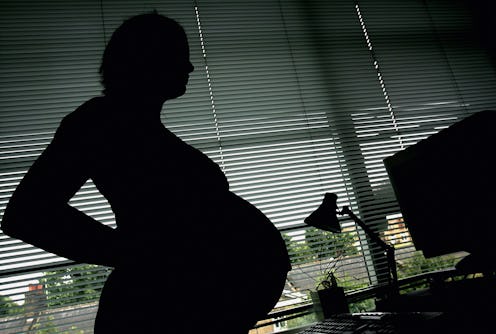News
Wisconsin's "Cocaine Mom" Law Strikes Again
Uninsured, suffering, and unknowingly pregnant, Tamara Loertscher was jailed for a personhood-like law in Wisconsin. Her crime? Self-medicating, then telling the truth about it. Her transparency got her locked up for 17 days, yet another example of harmful laws that ultimately punish pregnant women instead of getting them the help that they need.
Loertscher began using meth and marijuana in a self-prescribed solution to an undiagnosed thyroid problem. In July 2014, she suspected she was pregnant and stopped using drugs. Aug. 1, she was advised by the Taylor County Department of Human Services to go to the hospital, and Loertscher went seeking treatment and a pregnancy test.
The 30-year-old, who found she was 14 weeks pregnant in her visit, submitted to a urine test and admitted she had been using drugs. Loertscher, who had previously never had a history of drug abuse, was jailed for over two weeks. While in solitary confinement, she was denied her thyroid treatment and two prenatal doctor visits despite experiencing cramping.
On Dec. 15, reproductive rights and legal groups filed a suit on Loertscher's behalf challenging the harmful "cocaine mom" law. The 1997 law allows the state to charge pregnant women who have an alleged history with or presently engage in drug use. Wisconsin's act is one of many pieces of legislation that operates under the mantra of anti-abortion activists — your fetus is already considered a person, and, in the case of Loertscher, the unborn may have more rights than you do.
National Advocates for Pregnant Women, one of the advocacy groups who filed the suit, has identified 15 other cases from 1973 to 2005 in Wisconsin similar to Loertscher's. But the problem isn't secluded in the state, it is rampant nationwide. According to the Guttmacher Institute, 18 states consider substance abuse in pregnant women as a form of child abuse. Some states, like Wisconsin, require that pregnant women who have tested positive for drug use be subject to regular drug tests. so even though Loertscher is out of jail, she is still under the state's watch during her pregnancy.
On its face, this, like many of the laws aimed at pregnant women, seems like a good thing when put into simplistic terms. This will discourage pregnant women from doing drugs, and that is a good thing, right? The problem is that the legislation skirts addressing a much larger problem of substance abuse. The only thing that a law like this will achieve is discouraging women with serious addictions from coming forward and putting permanent blights on the record of women like Loertscher, who wasn't even aware she was pregnant during her alleged use.
The law is nothing more than a flimsy Band-Aid slapped on a failure in our health system.
Images: Getty Images
